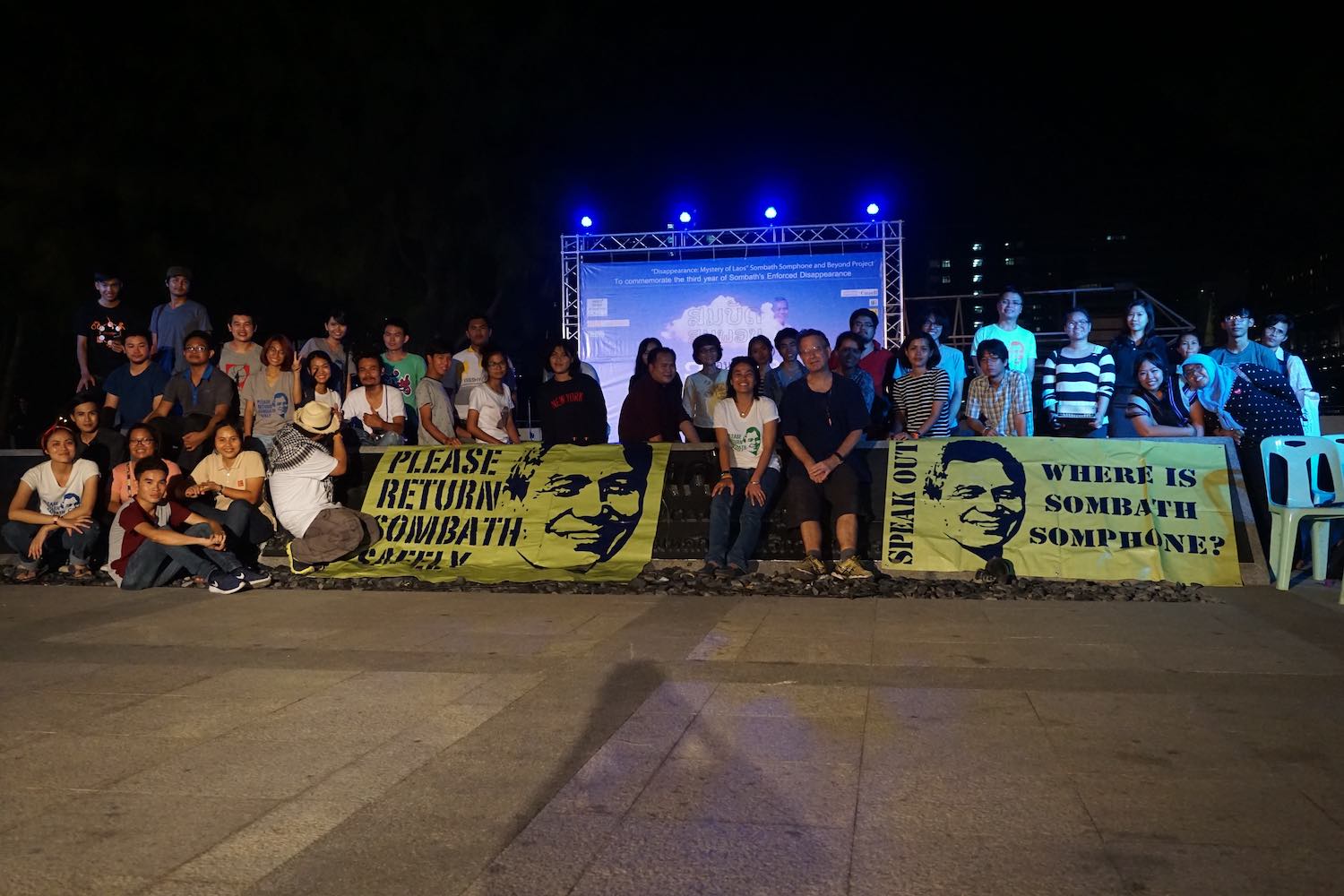The Straits Times: 18 April 2013
 Mr Sombath Somphone, a 62-year-old award-winning Laos civil society activist, with his Singaporean wife Ng Shui Meng. Mr Sombath was driving his jeep near a busy intersection in Vientiane when he went missing on Dec 15, 2012.
Mr Sombath Somphone, a 62-year-old award-winning Laos civil society activist, with his Singaporean wife Ng Shui Meng. Mr Sombath was driving his jeep near a busy intersection in Vientiane when he went missing on Dec 15, 2012.
By Nirmal Ghosh, Indochina Bureau Chief
BANGKOK – Mr Sombath Somphone, a Magsaysay Award winner for public service, was last spotted by the cold and unblinking eye of a CCTV camera on the evening of Dec 15 last year, getting into an unknown SUV on a street in Vientiane and being driven away.
Since his disappearance, the Lao government has said he was abducted, but denied that any security agency took him. This has been received with wide scepticism, and the Lao government continues to come under pressure at international forums.
Mr Sombath had only just retired as head of the Participatory Development Training Centre, Laos’ most prominent home-grown civil society organisation. He was a well-known figure in the international development community, and a mentor for countless young Laos.
In Vientiane itself, a curtain of silence has descended over his disappearance more than 100 days ago. His wife, Singaporean Ng Shui Meng, is physically and emotionally exhausted but still not contemplating leaving Laos, the couple’s home for over 30 years – any time soon.
“Sometimes I feel this has to be a dream, a nightmare. I stay because there is still some hope,” she says.
The 100-day anniversary, on March 15, of Mr Sombath’s disappearance roughly coincided with the ninth anniversary of the disappearance of Thai lawyer Somchai Neelepaijit in Bangkok on March 12, 2004. He has also not been found and, as in the case of Mr Sombath, there is no proof he is still alive. Continue reading “A Congruence of Disappearances”









